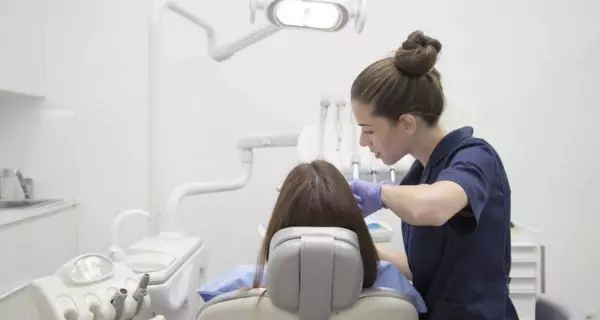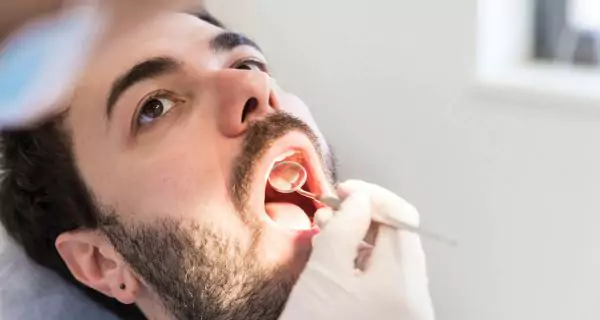Last Updated on: 19th September 2025, 12:30 pm
Amyotrophic Lateral Sclerosis (ALS) can severely affect oral health as it progresses, making daily hygiene tasks like brushing, swallowing, and speaking increasingly difficult. This article explains how each stage of ALS impacts the mouth and offers practical oral care tips and tools tailored for patients and caregivers, aiming to prevent infections, improve comfort, and support quality of life.
When we talk about Amyotrophic Lateral Sclerosis (ALS), the first thing that usually comes to mind is the progressive loss of strength and mobility. While those are the most visible symptoms, ALS can also have a deep impact on oral health. As the disease advances, everyday actions like brushing your teeth, swallowing, speaking, or maintaining good oral hygiene become increasingly difficult.
In this article, we take a close look at the ALS stages from an oral health perspective. We explore how each phase impacts the mouth, offer easy-to-follow dental care strategies, and highlight tools and tips that truly make a difference, especially for caregivers.
How does ALS impact oral health?
ALS is a progressive neurodegenerative disease that gradually damages the neurons responsible for voluntary muscle control. It starts subtly and becomes increasingly severe, affecting everything from walking and breathing to chewing, swallowing, and smiling.
While much of ALS care focuses on motor skills and breathing support, oral health deserves just as much attention.
Connection between oral health and ALS progression
A healthy mouth is not just about fresh breath or clean teeth; it plays a direct role in preventing serious health complications and preserving dignity.
- Breathing and lung health:
Swallowing difficulties can cause food or saliva to enter the airway. When harmful bacteria from the mouth reach the lungs, they can lead to aspiration pneumonia, one of the leading causes of hospitalization in advanced ALS.
- Nutrition and eating:
Mouth pain, infections, or ill-fitting dentures can make chewing uncomfortable or painful. This often leads to reduced food intake, worsening malnutrition, a serious issue for people with ALS who already face weight loss and muscle wasting.
- Emotional and social well-being:
Issues like dry mouth, drooling, or bad breath can be distressing. They may affect self-esteem, limit social interaction, and create unnecessary discomfort. A clean, cared-for mouth helps maintain confidence, connection, and quality of life.
How do ALS stages affect oral health?
Understanding how the disease evolves helps anticipate oral changes and adapt dental care to each ALS stage.
Early stage: first signs in the mouth
In the initial ALS stage, many patients still have good independence. But subtle symptoms begin to appear:
- mild speech slurring or tongue fatigue, especially after long conversations
- jaw tiredness while chewing
- weakened grip or shaky hands, making it harder to hold a toothbrush or floss
- more plaque buildup and brushing becomes less effective, increasing the risk of cavities, gum inflammation, or bad breath.
- mild difficulty swallowing, sometimes noticed only with certain foods
This stage needs awareness and small adaptations to daily routines. This is the time to start shifting to easier tools and set consistent hygiene habits.
Middle stage: the need for assistance begins
As ALS progresses, symptoms become more visible and oral health takes a bigger hit:
- moderate to severe dysphagia (difficulty swallowing)
- excess saliva that they can’t easily be managed (sialorrhea)
- dry mouth from medications or breathing through the mouth
- beginning to rely on caregivers for brushing and oral maintenance
- suffering from accidental bites, gum irritation, or mouth sores
- may be unable to speak clearly, making it hard to express oral discomfort
At this stage, the patient needs daily assistance, careful observation, and gentle products to avoid irritation or infection.
Late stage: comfort and prevention take priority
In the advanced stage, patients may be unable to swallow, speak, or move. Oral muscles weaken completely. You may also see:
- partial or total paralysis of the mouth and facial muscles
- severe dysphagia or complete inability to swallow
- very limited or no communication
- enlarged tongue (macroglossia), often seen in patients with prolonged tracheostomy
- black hairy tongue, caused by poor hygiene and a lack of tongue movement
- significant tartar, gingivitis, and cavities from the inability to clean the mouth properly
- frequent soft tissue injuries from biting or poorly fitted dentures
- unnoticed pain, because the patient can no longer communicate it
Patients need full caregiver support, basic hygiene with soft tools, prevention of infections, and attention to comfort above all else.
What are some oral hygiene tips for ALS patients?
Oral hygiene in people with ALS must evolve along with the disease. What works early on may become difficult or impossible later. Here’s how to care for the mouth at every stage, with practical tips and tools that can make a real difference.
Early stage: promoting independence
At this point, many patients can still perform their own oral hygiene, although some adjustments might be needed. The goal is to strengthen daily habits without losing independence:
- electric toothbrushes with wide, ergonomic handles
- floss holders or water flossers to avoid fine hand movements
- alcohol-free mouthwash to prevent burning or drying
- soft, fluoride toothpaste made for sensitive gums
- routines: Brushing twice a day, flossing once, using a visual checklist if helpful
Tip: Encourage the patient to take breaks when brushing becomes tiring. Even doing it in two short sessions can help.
Middle stage: gentle assistance from caregivers
As the disease progresses, patients begin to lose autonomy, and caregivers need to take a more active role with:
- soft, angled toothbrushes to reach all areas with minimal effort
- mouth props or openers to help gently hold the mouth open during cleaning
- foam swabs or dental wipes for gentle cleaning when a brush is too harsh
- oral suction devices to remove saliva or food safely
- gel-based oral moisturizers or sprays for dry mouth relief
- daily checks: look for sores, bleeding gums, or fungal infections
Tip: Always clean in a semi-upright position – never lying flat – to help prevent choking or aspiration.
Late stage: simplifying hygiene and preserving comfort
In this final phase, patients face complete physical deterioration. The main focus here is to prevent infections and keep the mouth as clean and comfortable as possible with:
- disposable oral swabs soaked in antiseptic or moisturizing solution
- suction tools for constant saliva removal
- non-rinse oral wipes for regular cleaning
- Vaseline or balm to protect dry, cracked lips
- gentle tongue cleaning, if possible, to prevent buildup
- low-power electric toothbrush or soft swab, if brushing is still tolerable
- Note: avoid any harsh or irritating products, like alcohol-based mouthwash or abrasive toothpaste
Tip: Even if the person is fed through a tube, daily oral hygiene performed 2-3 times a day is crucial to prevent infections and discomfort.
What are the best products to use by ALS stage?
Stage | Recommended tools |
Early | Electric toothbrush, floss holder, fluoride toothpaste, alcohol-free rinse |
Middle | Mouth prop, soft toothbrush, suction device, moisturizing gel, foam swabs |
Late | Suction unit, dental wipes, oral swabs, lip balm, gentle antiseptic rinse |
What are some caregiver tips for managing oral hygiene?
Caring for someone’s mouth can feel awkward, especially at first. Here’s how to make it easier:
Create a predictable routine
- Set consistent times (e.g., morning and evening)
- Use soothing music, gentle touch, and explain each step
- Include oral care as part of general grooming (like washing the face)
Focus on comfort and safety
- Never rush
- Always perform hygiene with the patient in a semi-upright position to avoid choking
- If the patient is in bed, keep their head elevated and use safe, soft tools
- Choose products with no alcohol, strong scents, or harsh ingredients
Know when to ask for help
- Work with an occupational therapist to adapt toothbrushes or suction tools
- Talk to a speech-language pathologist for swallowing issues
- Ask a dentist for home visits or hospital-based cleanings
A clean mouth is part of a patient’s overall well-being. Good oral hygiene can reduce infections, improve feeding, ease discomfort, and most importantly, preserve the patient’s dignity.
When should someone with ALS see a dentist?
Even when mobility becomes limited, regular dental checkups should remain a part of the care plan. Dental visits aren’t just about cleanings; they’re a proactive step toward preventing complications that could impact comfort, nutrition, and overall health.
How often should to visit the dentist
- Don’t wait for pain or visible issues.
- Schedule checkups every 3 to 6 months, or as recommended by a healthcare provider.
- In many areas, in-home or hospital-based dental services are available and worth exploring.
What to discuss with the dentist
- any changes in swallowing or saliva control
- presence of mouth sores, irritation, or pain
- recommendations for toothpaste, brushes, suction tools, or mouth moisturizers
- adjustments to dentures or prosthetics that no longer fit comfortably
In ALS, prevention is a necessity. Regular dental care helps reduce the risk of infections, eases discomfort, and supports quality of life at every ALS stage.
Conclusion
Living with ALS doesn’t mean giving up on well-being. Oral care in this disease isn’t just about hygiene or appearance; it’s a form of love, prevention, and holistic care.
Throughout the ALS stages, a healthy mouth can make a huge difference in eating, communication, and personal comfort. With the right tools, the right support, and an adapted routine, good oral health is not only possible but empowering, even during the most difficult moments.
Frequently Asked Questions
Can I use mouthwash if my family member can’t spit or rinse?
Is flossing still necessary if the person can’t do it themselves?
Can oral thrush happen in ALS patients?
What if they bite down during brushing?
Can a person with ALS use dentures?
Voice and Search (Q&A)
How does ALS affect oral health?
ALS affects oral health by making it hard to brush, chew, swallow, and speak. It increases the risk of plaque buildup, gum disease, dry mouth, and infections.
What are the best oral care tools for ALS patients?
The best tools include electric toothbrushes, mouth props, suction devices, soft swabs, moisturizing gels, and alcohol-free rinses — depending on the stage of ALS.
When should someone with ALS see a dentist?
People with ALS should see a dentist every 3 to 6 months, or sooner if they have mouth sores, swallowing problems, or ill-fitting dentures.
Share
References
1. AlMadan, N., AlMajed, A., AlAbbad, M., AlNashmi, F., & Aleissa, A. (2023). Dental Management of Patients With Amyotrophic Lateral Sclerosis. Cureus, 15(12), e50602. https://doi.org/10.7759/cureus.50602
2. Eshenaur, S. A., Lee, W. B. (2023, 7 December). Oral Health Considerations for Patients with Neurodegenerative Conditions. CareQuest Institute Continuing Education Webinar. https://www.carequest.org/system/files/Webinar%20Notes_Oral%20Health%20Considerations%20for%20Patients%20with%20Neurodegenerative%20Conditions.pdf
3. To, H. L., Chen, H. S., Kao, C. T. (2018) Oral Care of a Patient with Amyotrophic Lateral Sclerosis (ALS). Educ Res Appl: ERCA-148. https://www.gavinpublishers.com/article/view/oral-care-of-a-patient-with-amyotrophic-lateral-sclerosis-als
-
Dr. Yeidy Carolina Mesa [Author]
DDS Yeidy Carolina Mesa Passionate Dentist | Advocate for Accessible Oral Health Education Graduating from Universidad CES in 2022, I am a dedicated general dentist with a lifelong passion for helping others and making a meaningful impact in the world. My journey into dentistry began at the age of 7, inspired by my own experience with braces and overcoming a fear of the dentist. This personal journey shaped my mission to help patients conquer their own dental anxieties and embrace a healthier,...
View all posts
-
Nayibe Cubillos M. [Medical Reviewer]
Pharmaceutical Chemestry |Pharmaceutical Process Management | Pharmaceutical Care | Pharmaceutical Services Audit | Pharmaceutical Services Process Consulting | Content Project Manager | SEO Knowledge | Content Writer | Leadership | Scrum Master
View all posts
A healthcare writer with a solid background in pharmaceutical chemistry and a thorough understanding of Colombian regulatory processes and comprehensive sector management, she has significant experience coordinating and leading multidisciplina...






















